Dec 2023. Blues Vol 39 No. 12
- Text
- New homes
- Dr horton
- Police academy
- Recruiting
- Police jobs
- Houston police
- Austin police
- Rusty barron
- Michael barron
- Rex evans
- Blues police magazine
- Law enforcement
- Law enforcemnt
- Police news
- Largest police magazine
- Largest police magazine world
- 40th anniversary issue
- Blues
- Barron
- Byrna
The Introduction of the
The Introduction of the MacIntosh in 1984 and the Apple LaserWriter in 1985, were both a game changer for small publishers like The BLUES. on letters for the headlines. Proofing: Once the paste-up was complete, the newspaper’s editors would review the layout and make any necessary changes or corrections. This might involve adjusting the placement of text or images, reworking headlines or captions, or making other changes to improve the overall design and readability of the paper. In other words, more yelling from the front office. Printing: After the proofing process was complete, the paste-up pages would be sent to the printing press at the Conroe Courier. The production staff would use a large process camera to create negatives, which would be used to create printing plates, that would be used to print the newspaper. This was typically done using large, specialized printing presses that could print thousands of copies of the newspaper at a time. Overall, designing and laying out a newspaper in the 1980s was a complex and time-consuming process that required a high level of skill and attention to detail. It was a critical part of the newspaper production process, as it played a key role in determining the overall look and feel of the paper and in ensuring that the content was presented in an engaging and visually appealing way. All of this changed in late 1985 when Apple introduced the Macintosh computer. This single computer revolutionized the newspaper and print industry. Now you could type the articles in a program called “MacWrite” edit the stories, and then print the articles in 2” columns and paste them like before. Then in 1986, a new program called Page- Maker was created and OMG the planets aligned, and you could ‘design’ the entire tabloid using this program and print one single page. Then all you did was paste this 11 x 17 page onto the layout sheets. Imagine doing all this on a 9” screen. Now unless you have a passion for the way things used to be done, none of this may interest you at all. But way before there was an internet and or digital anything, this was the process one used to create printed publications. For years, we assembled these layout sheets and carried them to the printer every month. It was just the way it was done. 90 The Blues 40th Anniversary Issue
The Conroe Courier building in the 70’s & 80’s. Yes, I still have our first Mac from 1985. I hear it’s worth in the thousands, but to me, it’s priceless. The Blues 40th Anniversary Issue 91
- Page 1 and 2:
The Blues 40th Anniversary Issue 1
- Page 3 and 4:
VOL. 39 NO. 12 December 2023 FEATUR
- Page 5 and 6:
FOUNDER, PUBLISHER, EDITOR-N-CHIEF
- Page 7 and 8:
Chief Rex Evans, Pretends to fly a
- Page 9 and 10:
Alan and Blake Helfman wish to cong
- Page 11 and 12:
START SHOPPING The Blues 40th Anniv
- Page 13 and 14:
The Blues 40th Anniversary Issue 13
- Page 15 and 16:
YOUR PREMIER ONLINE TACTICAL GEAR S
- Page 17 and 18:
The Blues 40th Anniversary Issue 17
- Page 19 and 20:
The Blues 40th Anniversary Issue 19
- Page 21 and 22:
The Blues 40th Anniversary Issue 21
- Page 23 and 24:
4 bed CLEAR LAKE AREA of HOUSTON 3.
- Page 25 and 26:
LAW ENFORCEMENT PRODUCTS BYRNA MISS
- Page 27 and 28:
save many lives by protecting the p
- Page 29 and 30:
The Blues 40th Anniversary Issue 29
- Page 31 and 32:
about him the most. No matter how h
- Page 33 and 34:
The Blues 40th Anniversary Issue 33
- Page 35 and 36:
Stay like a HERO. EXPERIENCE GALVES
- Page 37 and 38:
LE AGENCIES CALL FOR PRICING Tel: 8
- Page 39 and 40: Backing the BLUE and your family to
- Page 41 and 42: The Blues 40th Anniversary Issue 41
- Page 43 and 44: Things Change Progress Happens Hand
- Page 45 and 46: Weichert Only Logo Speci f i catio
- Page 47 and 48: JOHN LALLY An American Hero “I go
- Page 49 and 50: LEARN MORE ATR 528 1000W MOTOR DUAL
- Page 51 and 52: Under 65 Healthcare Options? We hav
- Page 53 and 54: The Blues 40th Anniversary Issue 53
- Page 55 and 56: The Blues 40th Anniversary Issue 55
- Page 57 and 58: tional, stand-alone police station
- Page 59 and 60: AROUND THE COUNTRY ACROSS THE US Th
- Page 61 and 62: Stuff Happens Things Change Handwri
- Page 63 and 64: The Blues 40th Anniversary Issue 63
- Page 65 and 66: The Blues 40th Anniversary Issue 65
- Page 67 and 68: ALL FIRST RESPONDERS & VETERANS 10%
- Page 69 and 70: The Blues 40th Anniversary Issue 69
- Page 71 and 72: The Blues 40th Anniversary Issue 71
- Page 73 and 74: The Blues 40th Anniversary Issue 73
- Page 75 and 76: SUPPORT THE OFFICER DOWN MEMORIAL P
- Page 77 and 78: LAW ENFORCEMENT PRODUCTS BYRNA MISS
- Page 79 and 80: termined that a crime that had been
- Page 81 and 82: in Humble TX, the County Blues was
- Page 83 and 84: The Humble City Cafe was the origin
- Page 85 and 86: e procedural television series that
- Page 87 and 88: l Out There! The Blues 40th Anniver
- Page 89: The County Blues first office was l
- Page 93 and 94: The Blues The 40th BLUES 40th Anniv
- Page 95 and 96: The Blues The 40th BLUES 40th Anniv
- Page 97 and 98: In the summer of 1995, I sold The B
- Page 99 and 100: The Blues The 40th BLUES 40th Anniv
- Page 101 and 102: Click to Read 2020 Issues The Blues
- Page 103 and 104: Click to Read 2021 Issues The Blues
- Page 105 and 106: Click to Read 2022 Issues The Blues
- Page 107 and 108: The BLUES 1 Click to Read 2023Issue
- Page 109 and 110: Editor-at-Large: Chief Rex Evans Se
- Page 111 and 112: Contributing Editor: Lt. Daryl Lott
- Page 113 and 114: Contributing Editor: Detective Dani
- Page 115 and 116: YOUR PREMIER ONLINE TACTICAL GEAR S
- Page 117 and 118: Under 65 Healthcare Options? We hav
- Page 119 and 120: The Blues 40th Anniversary Issue 11
- Page 121 and 122: HARRIS COUNTY SHERIFF’S OFFICE Tw
- Page 123 and 124: The Blues 40th Anniversary The BLUE
- Page 125 and 126: The Blues 40th Anniversary Issue 12
- Page 127 and 128: BREAKDOWN OF CONSTRUCTION STAGE STA
- Page 129 and 130: ALDINE ISD POLICE DEPARTMENT JOIN O
- Page 131 and 132: Now Hiring School District Police O
- Page 133 and 134: The BLUES 133 The Blues 40th Annive
- Page 135 and 136: FALLEN HEROES DETECTIVE JAMES MICHA
- Page 137 and 138: FALLEN HEROES CORRECTIONAL OFFICER
- Page 139 and 140: FALLEN HEROES SERGEANT MICHAEL MORA
- Page 141 and 142:
FALLEN HEROES SERGEANT MICHAEL ABBA
- Page 143 and 144:
to “de-fund” their police depar
- Page 145 and 146:
me when I started. The day shift se
- Page 147 and 148:
just needed a minute to think. I gu
- Page 149 and 150:
front door, a man in his fifties op
- Page 151 and 152:
come see you. Can I come in?” We
- Page 153 and 154:
fact your wife.” “There has to
- Page 155 and 156:
LEARN MORE ATR 528 1000W MOTOR DUAL
- Page 157 and 158:
him I was trying to get to the syna
- Page 159 and 160:
The Blues 40th Anniversary Issue 15
- Page 161 and 162:
officers he was serving with. For o
- Page 163 and 164:
CHICAGO COFFEE CITY, TX. - MAYOR, R
- Page 165 and 166:
ARRON reams & Reality of a y Mounta
- Page 167 and 168:
ARRON a hot meal. A long and cold f
- Page 169 and 170:
ARRON those “mishaps and adventur
- Page 171 and 172:
The Blues 40th Anniversary Issue 17
- Page 173 and 174:
The Blues 40th Anniversary Issue 17
- Page 175 and 176:
The Blues 40th Anniversary Issue 17
- Page 177 and 178:
The Blues 40th Anniversary Issue 17
- Page 179 and 180:
NO WORDS ... pardon our humor The B
- Page 181 and 182:
POLICE SUPPLIES choose the heading
- Page 183 and 184:
POLICE SUPPLIES GUNS/AMMO Starting
- Page 185 and 186:
The Blues 40th Anniversary Issue 18
- Page 187 and 188:
JOIN OUR TEAM! ARANSAS PASS POLICE
- Page 189 and 190:
The Blues 40th Anniversary Issue 18
- Page 191 and 192:
The Blues 40th Anniversary Issue 19
- Page 193 and 194:
The Blues 40th Anniversary Issue 19
- Page 195 and 196:
The Blues 40th Anniversary Issue 19
- Page 197 and 198:
Welcome Colony Police Department Th
- Page 199 and 200:
October 15 WATCH FOR NEW TEST DATES
- Page 201 and 202:
Cuero Police Department Now Hiring
- Page 203 and 204:
Paid academy up to ,560 Lateral
- Page 205 and 206:
GALVESTON COUNTY SHERIFF’S OFFICE
- Page 207 and 208:
The Blues 40th Anniversary Issue 20
- Page 209 and 210:
The Blues 40th Anniversary Issue 20
- Page 211 and 212:
JOIN OUR TEAM Place your department
- Page 213 and 214:
LATERAL DEPUTY The Blues 40th Anniv
- Page 215 and 216:
The Blues 40th Anniversary Issue 21
- Page 217 and 218:
The Blues 40th Anniversary Issue 21
- Page 219 and 220:
The Blues 40th Anniversary Issue 21
- Page 221 and 222:
FLOYD COUNTY SHERIFF’S OFFICE 125
- Page 223 and 224:
The Blues 40th Anniversary Issue 22
- Page 225 and 226:
Starting pay - ,889 Paid: Vacati
- Page 227 and 228:
PLACE YOUR DEPARTMENT’S AD HERE F
- Page 229 and 230:
Welcome Aboard Schulenburg PD The B
- Page 231 and 232:
LEWISVILL E Benefits and Additional
- Page 233 and 234:
The Blues 40th Anniversary Issue 23
- Page 235 and 236:
,709-,685 Based on Population
- Page 237 and 238:
MEMORIAL VILLAGES POLICE DEPARTMENT
- Page 239 and 240:
WE’RE HIRING Join our team and re
- Page 241 and 242:
The Blues 40th Anniversary Issue 24
- Page 243 and 244:
MAKE A DIFFERENCE IN YOUR COMMUNITY
- Page 245 and 246:
s-2 BENEFITS: • Medical, Dental,
- Page 247 and 248:
Welcome Aboard Rowlett Police Depar
- Page 249 and 250:
The Blues 40th Anniversary Issue 24
- Page 251 and 252:
The Blues 40th Anniversary Issue 25
- Page 253 and 254:
The Blues 40th Anniversary Issue 25
- Page 255 and 256:
The Blues 40th Anniversary Issue 25
- Page 257 and 258:
PLACE YOUR DEPARTMENT’S AD HERE F
- Page 259 and 260:
The Blues 40th Anniversary Issue 25
Inappropriate
Loading...
Mail this publication
Loading...
Embed
Loading...


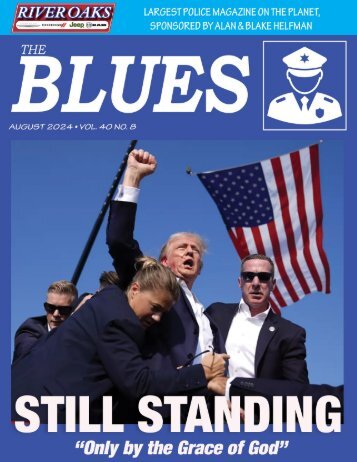
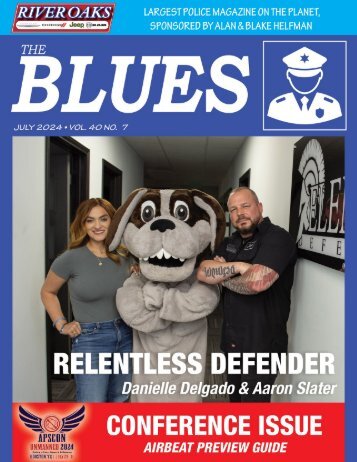
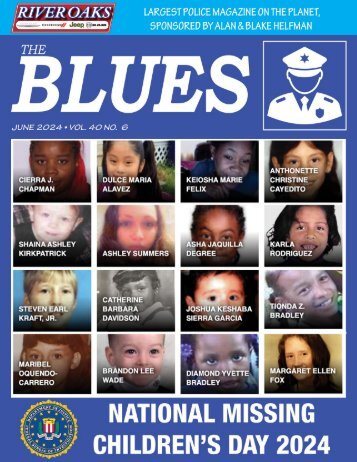
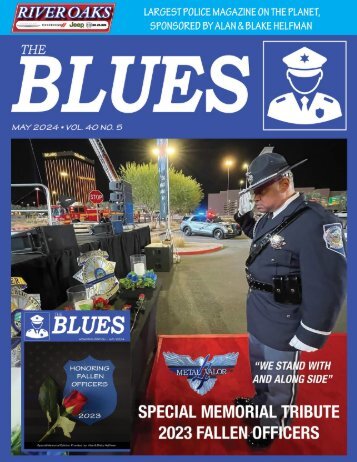
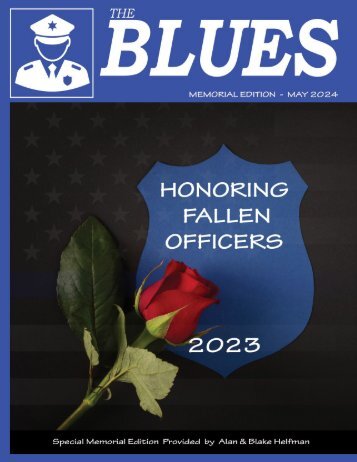
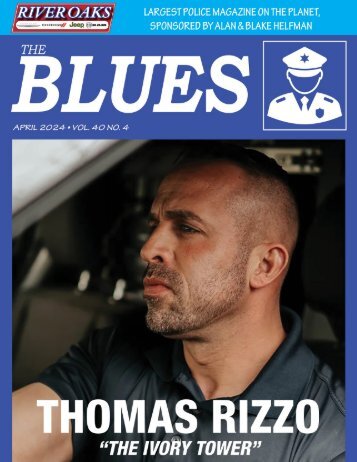
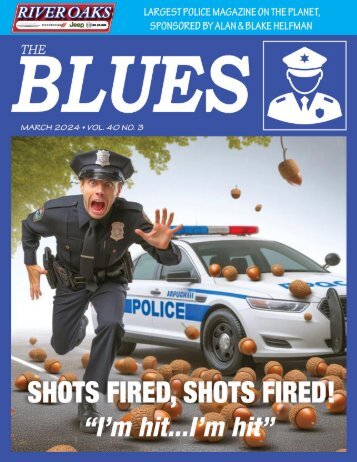

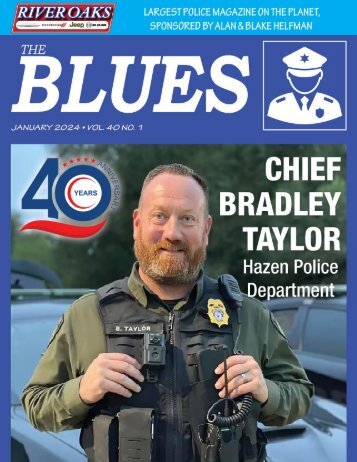
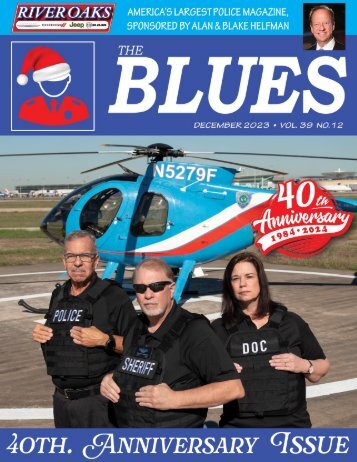
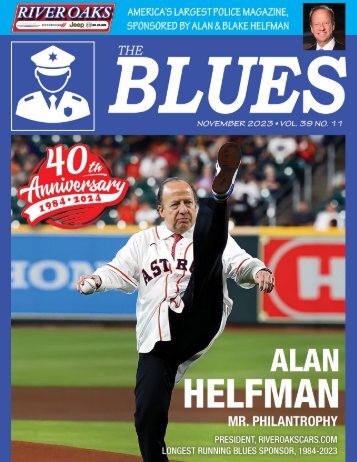
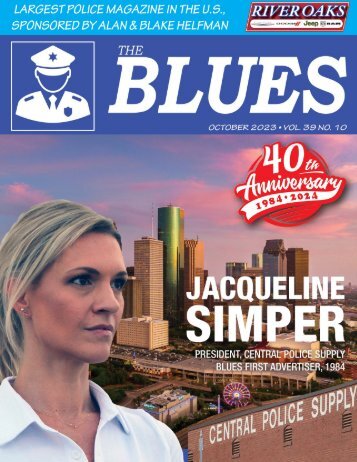
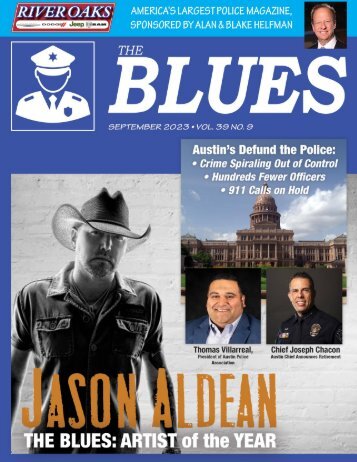
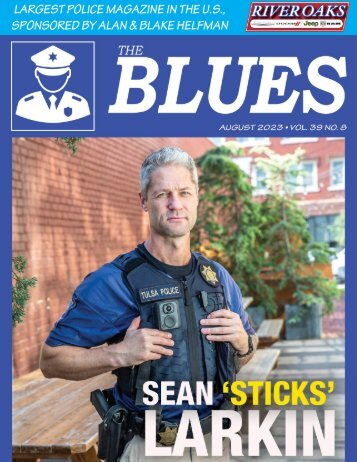
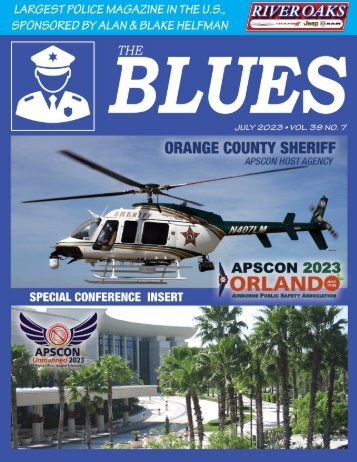
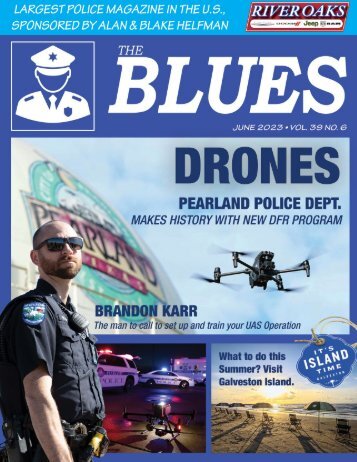
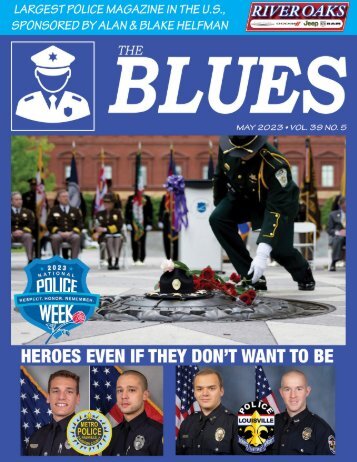
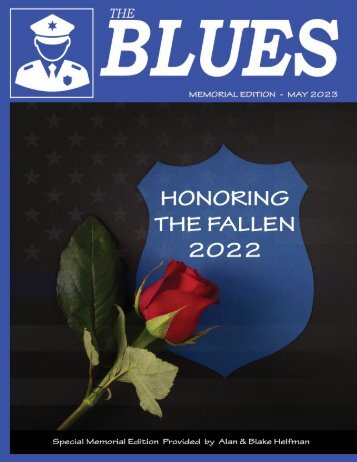
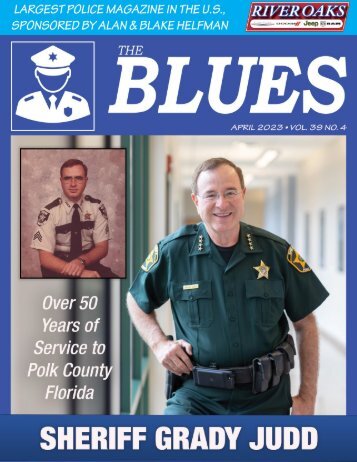
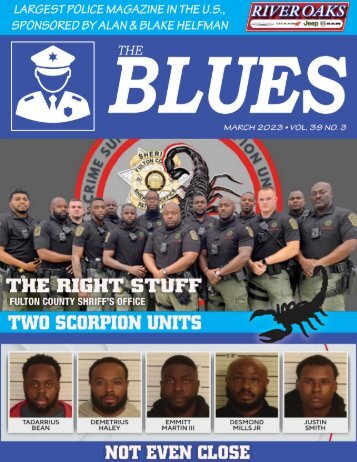
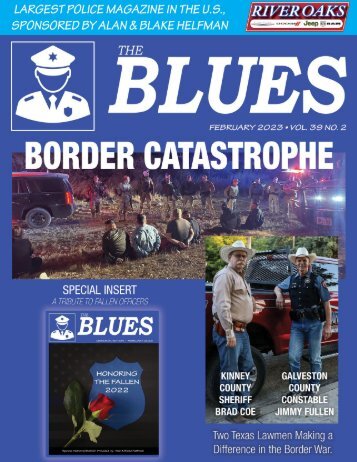
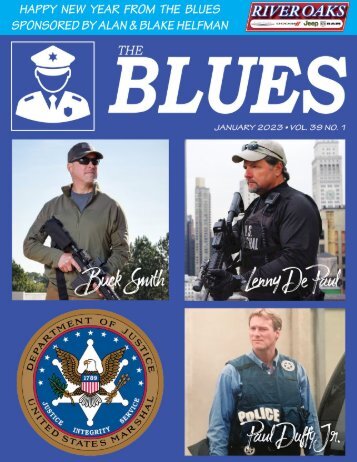

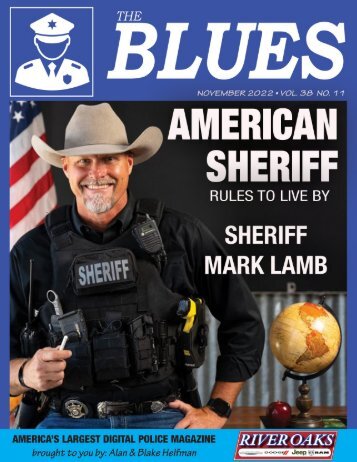
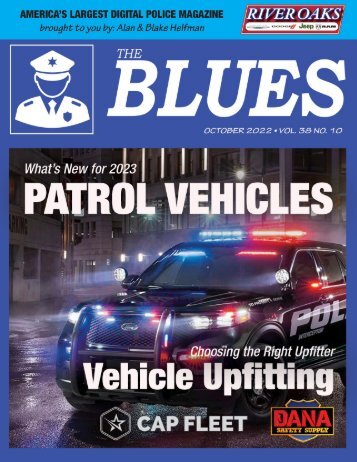
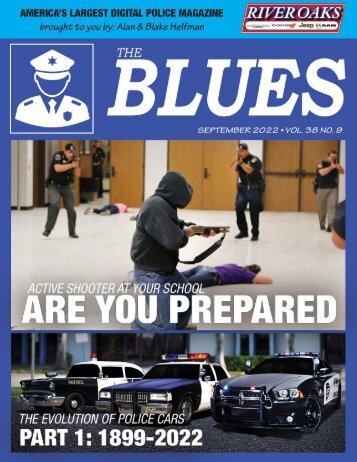
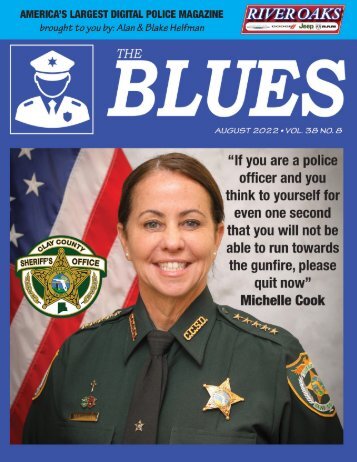
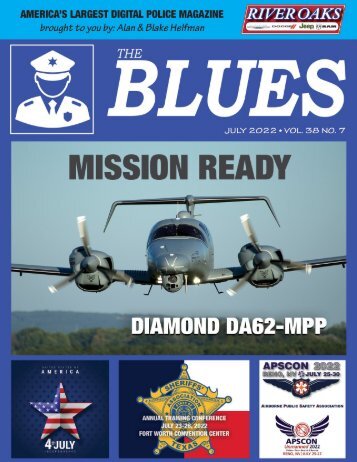
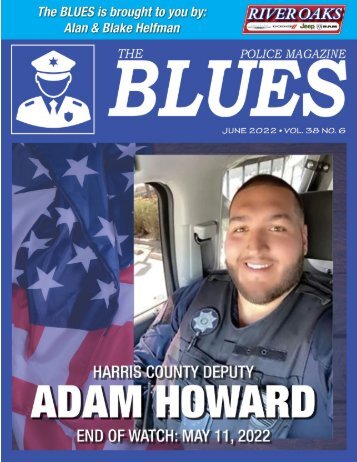
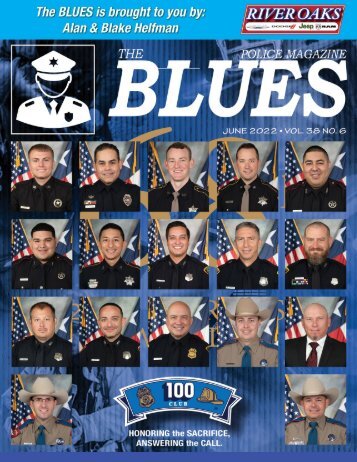
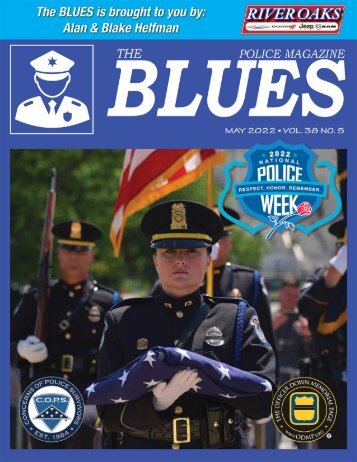
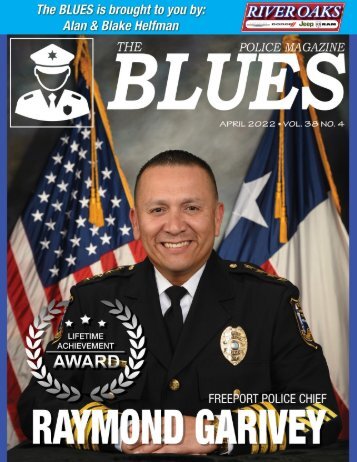
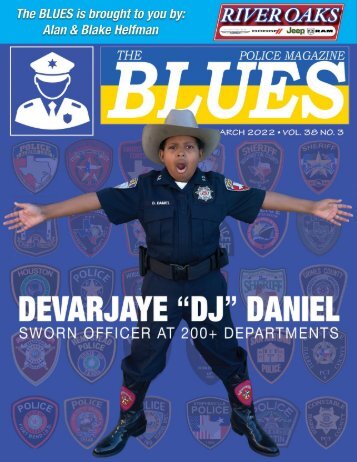
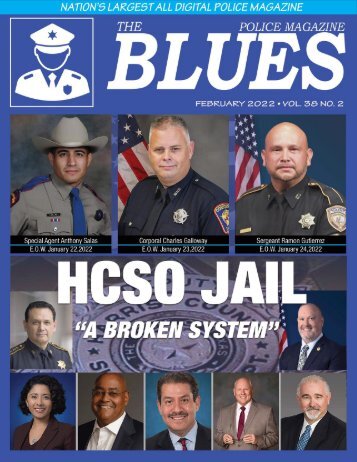
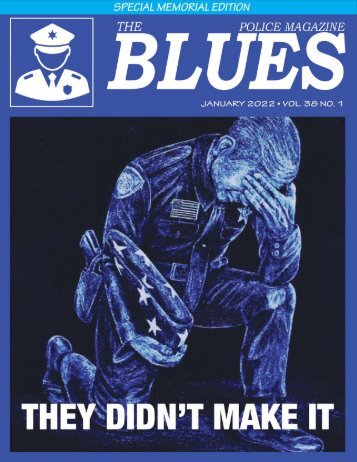
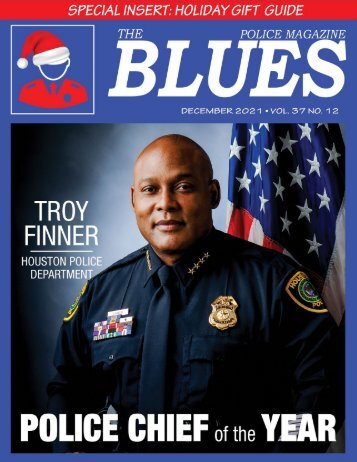
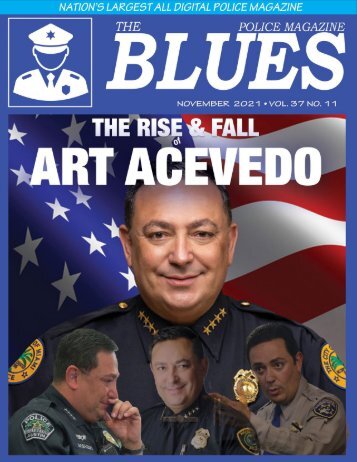
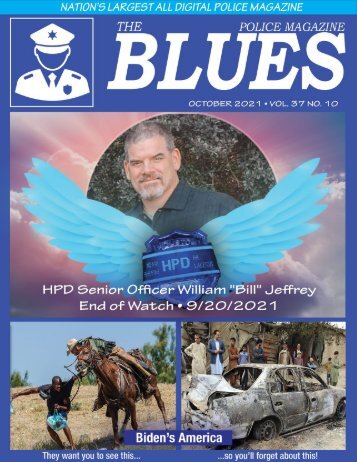
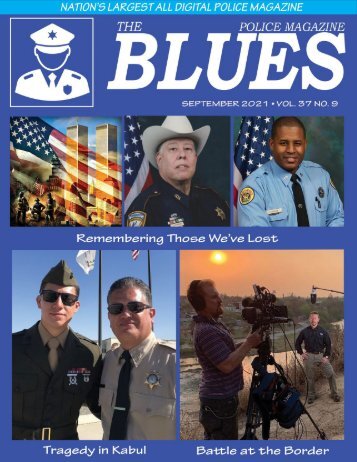
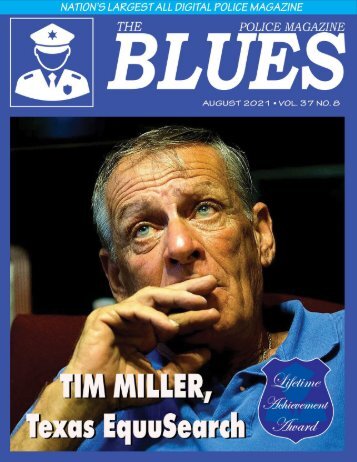
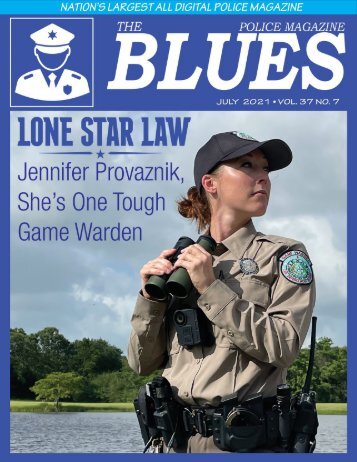

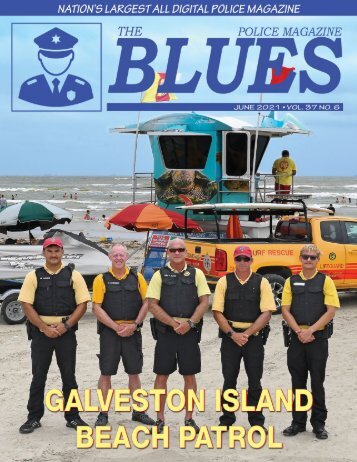

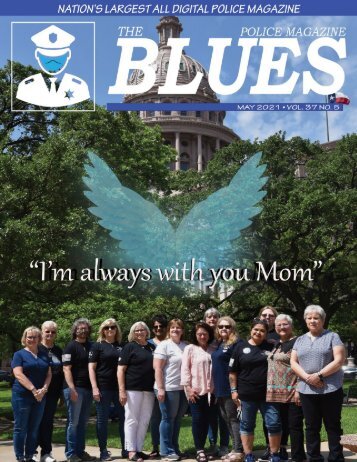
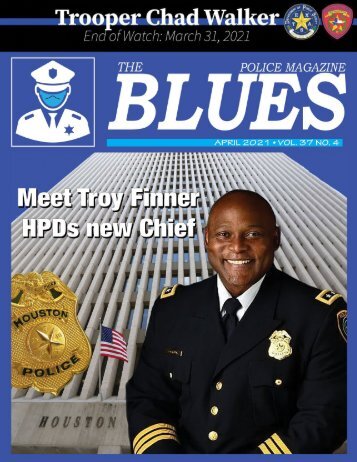
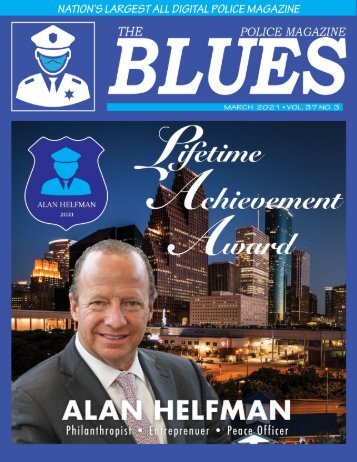
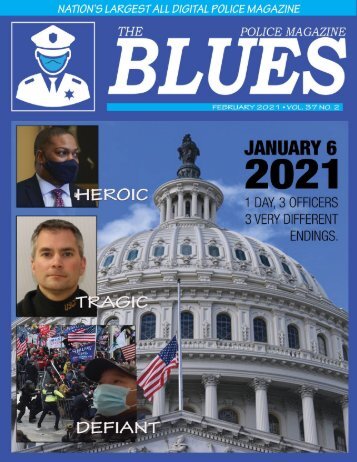

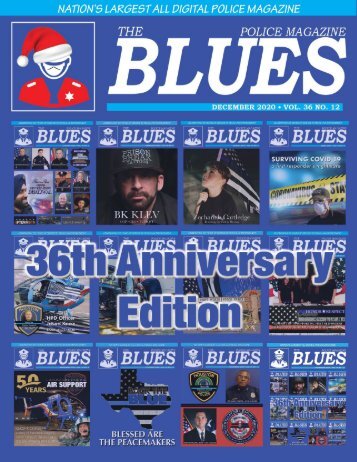
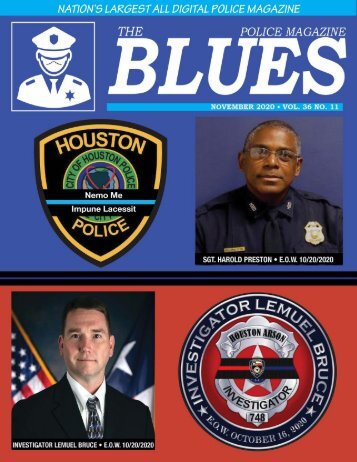
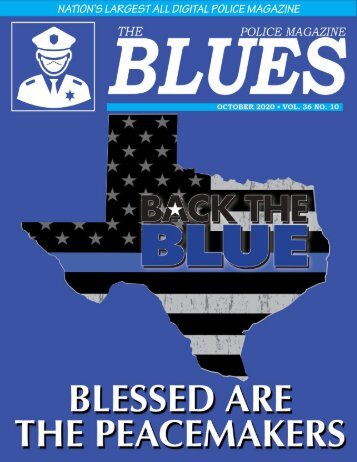
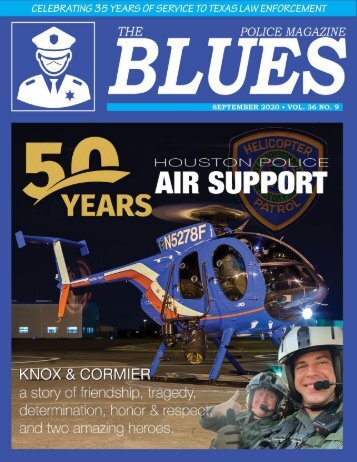
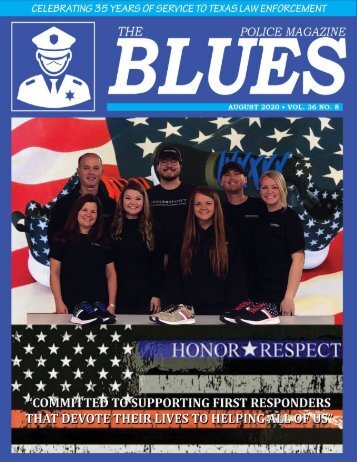
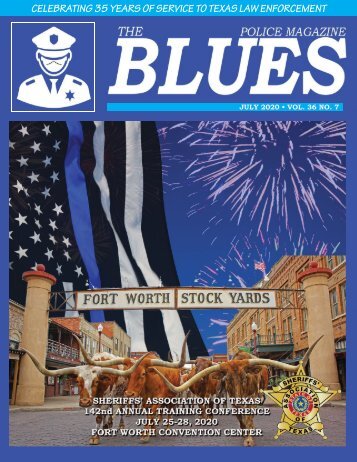
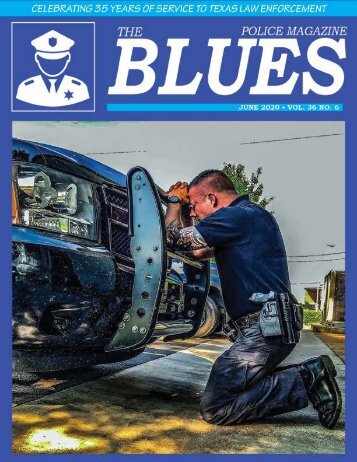
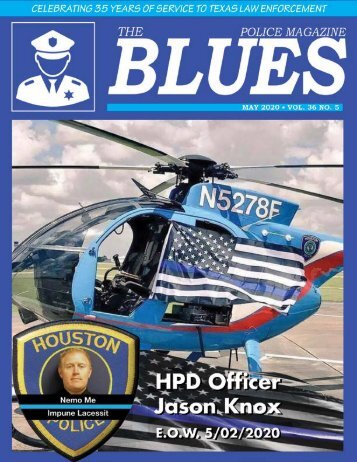
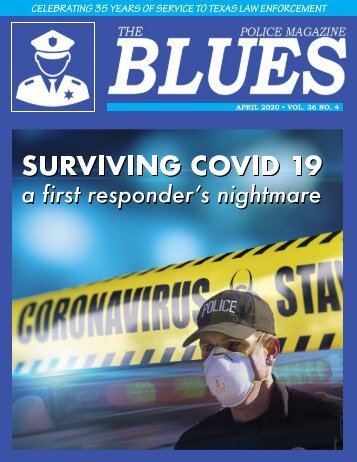
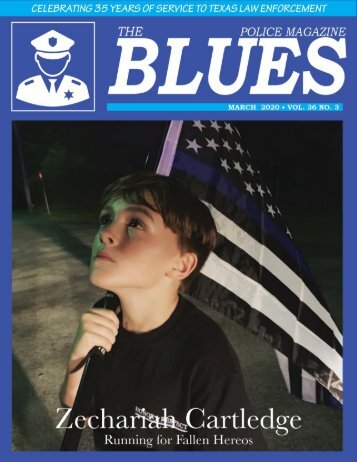
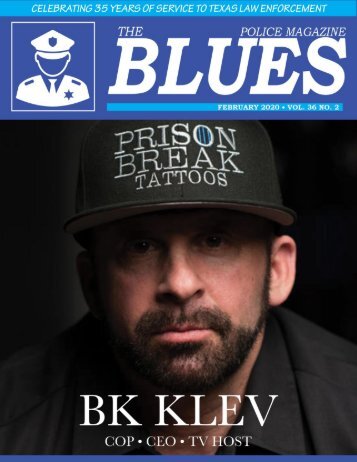
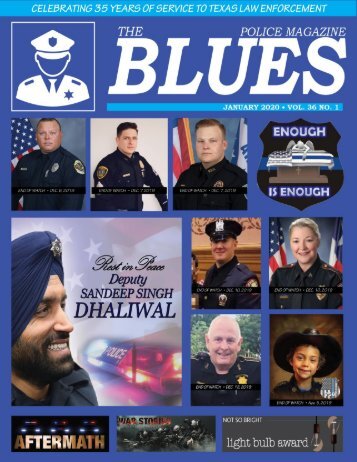
Follow Us
Facebook